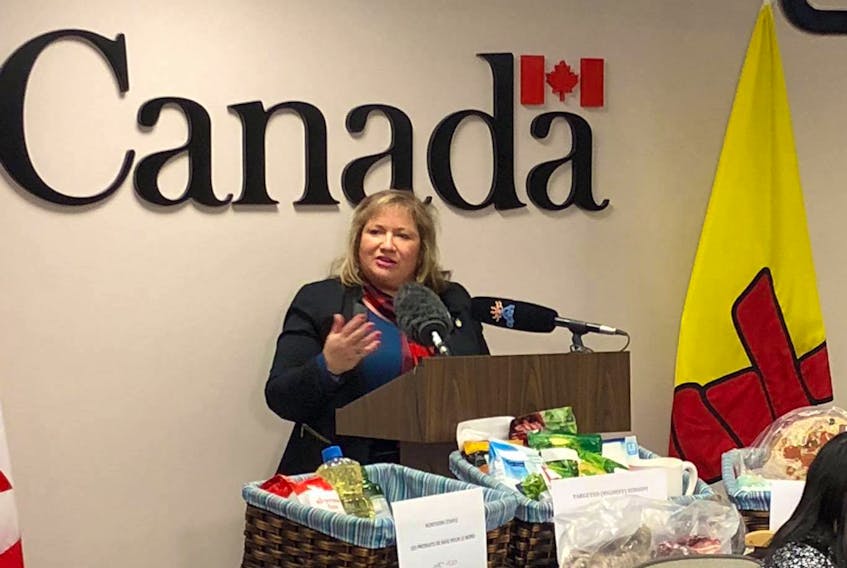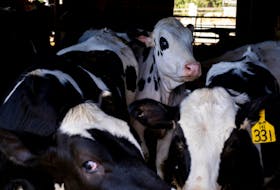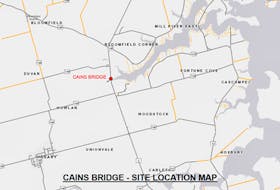NUNATSIAVUT
The federal government announced changes to the Nutrition North program on Dec. 10. While the Nunatsiavut Government (NG) is optimistic about the announcement, they still have concerns.
“Overall we’re happy that changes are being made,” said Kristeen McTavish, Food Security coordinator for NG. “We’re happy the federal government does recognize the program needs to be modified and updated.”
Yvonne Jones, MP for Labrador and Parliamentary Secretary to the Minister of Intergovernmental and Northern Affairs and Internal Trade, made the announcement for the federal government, noting there will be an investment of $62.6 million over five years to the program.
Related:
Nunatsiavut pulls out of Nutrition North Indigenous Working Group
Some of the changes announced are a revised subsidized foods list, including a focus on northern staples; a higher subsidy rate for milk, frozen fruit, frozen vegetables, infant formula, and infant food; and an increase to the two current subsidy rates.
The program is also updating its eligibility criteria to ensure that only retailers and suppliers that serve residents of isolated communities are eligible, and is also providing financial support to smaller retailers. The support is slated to help those retailers with the costs of meeting reporting requirements, as well as providing financial assistance with point of sale systems for retailers entering the program.
“Our government firmly believes that policy created with Northerners, for Northerners is the most effective,” Jones said at the announcement. “The changes to the subsidy rates and the food eligibility list announced today reflect what we have heard from Northerners about how we can better help them access healthy foods.”
Jones said the federal government does recognize the need to change the program.
McTavish said they are very happy to see some additional foods added to the subsidy list and a new harvesters support grant to help lower the high costs associated with traditional hunting and harvesting activities.
Concern
She said they are still concerned, however, about the program itself in a larger sense.
“Overall we’re still concerned about how the program is structured,” she said. “The way it’s structured in terms of the way it’s applied to the market system, with the money going to suppliers and stores, who are in most cases large corporations. We don’t think that structure is the right way to go about improving food security in the north.”
The funds the federal government has set aside for the program go directly to the retailers. McTavish told The Labradorian in a previous interview, they don’t feel the evaluation and transparency mechanisms are in place to see what is being done with those dollars.
She said small tweaks to the program doesn’t really change the issues they have with it. McTavish said they were hoping to see enhanced reporting mechanisms and increased transparency in the announcement but haven’t seen or heard anything yet.
Working group
A new Inuit-Crown Food Security working group was also announced, with a mandate to focus on food security and work towards a sustainable food system in Inuit regions. McTavish said they have heard this group can inform what the harvester support program will look like.
“They announced the program but no details as to what that will look like,” she said. “What we are hearing is there is a real commitment to work with the Inuit regions to implement that and make decisions on how that funding will be used.”
NG and the other Inuit representatives pulled out of an Indigenous working group in April 2018 that was set up by Nutrition North, citing lack of decision-making power and concerns that it was tokenism. When asked by The Labradorian if this was a concern for NG with the new working group, McTavish said she’s being optimistic.
“I think at this point we’re remaining hopeful,” she noted. “There does seem to be a commitment from the higher-level folks within the federal government and with this group there does seem to be a commitment to work together.”









